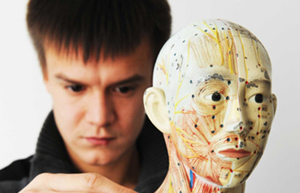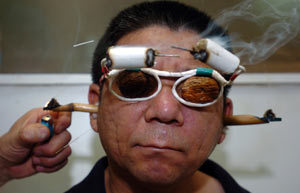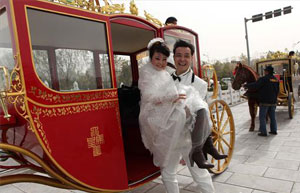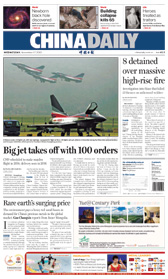German economy bounces back, post-stimulus
Updated: 2010-07-21 15:18
(Agencies)
Perhaps the most remarkable aspect of Germany's performance during the crisis was its success in keeping down unemployment, which was tamed by widespread use of a government-backed program allowing companies to put workers on reduced hours in an effort to avoid layoffs.
The number of people involved in the program peaked at 1.5 million in May 2009 but has since shrunk as people return to full-time work. BMW, for example, had up to 24,000 employees on short work at the height of the crisis, but hasn't used it since January.
Germany's jobless rate was 7.5 percent last month, with some 3.15 million people registered unemployed -- relatively low by German standards and well below the double-digit figures now seen in other parts of Europe.
In 2009, domestic consumption "to some extent saved Germany from an even bigger crash," said Ulrich Kater, the chief economist at Deka Bank in Frankfurt.
"It was surprisingly stable -- that was, of course, due to the short-work solutions," he added, noting that "it would have been significantly worse if people had lost their jobs."
Just as Germany was hit hard and fast by the crisis, its exposure to the world economy -- and to the benefits of stimulus programs and low interest rates elsewhere -- has helped it to a quick recovery, he argued.
In addition, labor-market and welfare reforms carried out under former Chancellor Gerhard Schroeder before 2005 helped make Germany's economy more stable and enabled it to "better withstand this storm," he said.
Kater said he expects growth of nearly 2.5 percent this year. But he cautioned that the second quarter "was clearly the high point of the recovery."
"This recovery won't break off, but it will become significantly slower," he said, adding that he still expects German production to reach its 2008, pre-crisis level in 2012.
Andreas Rees, an economist at UniCredit in Munich, said current indicators point to "a positive note" in economic data for the next few months but that businesses' and investors' outlooks are now darkening.
"After the harshest recession ever and the surprisingly strong upswing in the last 21 months, there are a lot of question marks and unknown quantities going forward," Rees wrote in a research note.
Among other things, "the fizzling out of the fiscal stimulus packages and the public spending cuts in European countries entail the risk of a stronger-than-expected setback," he said.
Paper's Digest

China bags Asiad team tennis title after 24 yrs
Wimbledon semifinalist Li Na led host China to capture the team tennis title on Tuesday at the Asian Games, accomplishing her Asiad tour with three consecutive victories.
China rate rises no panacea to curb inflation: PBOC adviser
Specials

Russian possessed with TCM
Born into a family of doctors, Maxime became interested in Traditional Chinese Medicine (TCM) at the age of 12, after hearing about TCM theories such as health preservation and recuperation.

Acupuncture takes stab at UNESCO list
Acupuncture and Peking Opera have been selected as candidates for UNESCO intangible cultural heritage status.

The wedding coach comes back to life
A groom carries his bride from a wedding coach in Xuchang, Henan province, Nov 11, 2010. Produced a local factory, various original hand-made wedding carriages were displayed on the streets, attracting young people chasing fashion and an environment-friendly lifestyle.




